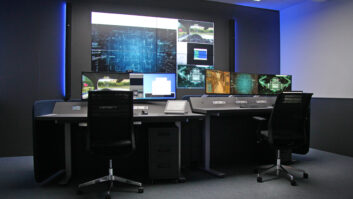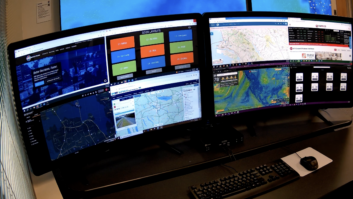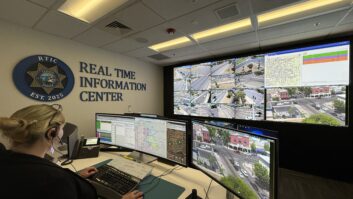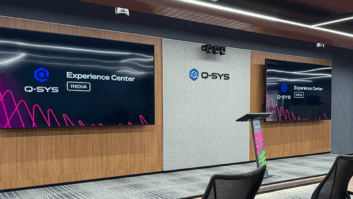
AV systems, access control systems and surveillance are joining voice telephony and computer data on the Ethernet cables and WiFi connections that run through every office and many homes. The IP network is evolving into the central nervous system of every premises. Installers who understand networking and have experience in any one of these major domains have an entry ticket into all three.
Market characteristics
AV is often a ‘champagne sale’ – customers fall in love with the idea of large screens in reception areas and/or store windows. While the AV world doesn’t necessarily fully understand IP it is learning fast and becoming savvy. There is a lot of terminology associated with AV and video transmission, and AV resellers are good at using this to present themselves as experts, especially with customers that speak the same ‘language’.
Surveillance by contrast is normally a ‘grudge purchase’, and customers often introduce or enhance it either in response to an incident or under pressure from insurers or their end-customers. Though there are certainly big players, most security installers are smaller companies that have been around for a long time and are quite set in their ways, and the transition to IP is taking them a long time. Not all have made the move to IP and this is leading to manufacturers introducing products that ‘dumb down’ IP. This approach can result in users inheriting separate networks for just one section of a building’s system.
Access control is today a major component of intelligent building management systems, and includes among other things tailgating and people counting, visitor management, and time and attendance management. It can have security aspects to it, but can also monitor dwell time, footfall, resource utilisation and other aspects of a building’s use. Endpoints can include biometric sensors, cameras and card readers, which can be integrated with face recognition or other security software. Access control has essentially always been computer based – so these resellers are probably the furthest up the technology curve.
For the IT channel, understanding the technology is the easy part: ‘it’s all data’. Once you understand IP it is no longer necessary to have someone focused on one discipline. What will come as a shock is the need to climb a ladder to install some of these systems. Computers, printers, phones and other endpoints tend to live at floor level. AV, access control and surveillance guys are well used to hanging equipment at height in obscure corners of buildings.
Cameras converge
A great example of the way convergence can work to the benefit of the customer and the installer alike is the installation of cameras. IP-based cameras are being fitted for all sorts of reasons, including training, security and the monitoring of assets like digital signage for maintenance purposes. Advances in camera technology are making it easier to apply one camera to multiple applications. Modern standard IP cameras are normally 1080p, a great improvement on analogue VGA cameras. Often, with suitable control software and security interlocks, the same camera that is trained on the lecturer in a training session can be redirected around the room for security when the building is unoccupied, and can also be pointed at digital signage in the area to monitor its performance. Even higher-resolution cameras, such as 4K, allow a wider field of view to be covered without sacrificing detail. This means that fewer cameras are required to cover a specific space or area.
Installers should always think beyond the installation in hand, and look at what uses a camera might potentially be put to in the future. Taken by itself, a request for quotation (RFQ) to replace the cameras in a suite of training rooms is very straightforward, and the decision is likely to be heavily influenced by price. However, by exploring further and anticipating potential future needs the installer can give himself a non-price-based differentiator on the first RFQ. This one-off project then becomes the start of a long-term relationship.
Carl Hayesmore is technical sales manager, networks/IP at Midwich.







